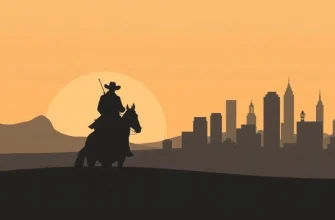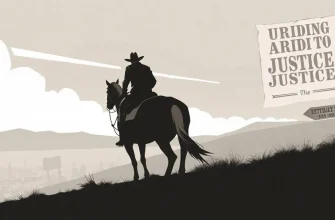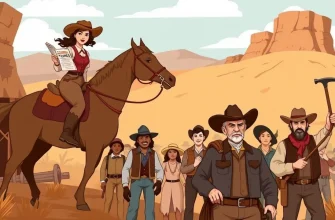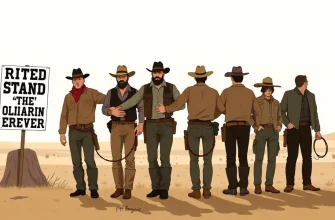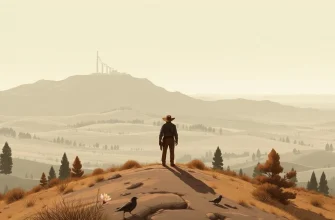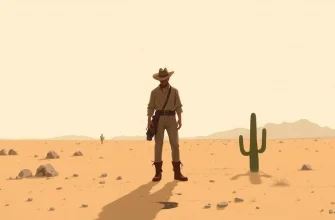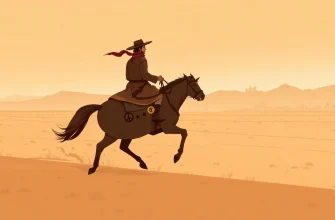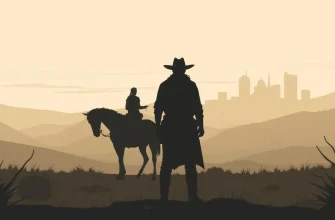The Wild West, often portrayed as a lawless land, has been the backdrop for many films that delve into themes of justice, freedom, and human rights. This curated list brings together ten Western films that not only entertain but also enlighten, showcasing the struggle for equality, the fight against oppression, and the quest for justice. These films, with their compelling narratives and strong moral messages, provide a unique perspective on human rights through the lens of the American frontier.

The Ox-Bow Incident (1943)
Description: This classic Western examines mob justice and the consequences of vigilante actions, focusing on the wrongful lynching of three innocent men, raising questions about due process and human rights.
Fact: The film was nominated for an Academy Award for Best Picture, and its themes are still relevant today, making it a timeless piece on the dangers of mob mentality.
 Watch Now
Watch Now 
The Magnificent Seven (1960)
Description: A group of gunfighters are hired to protect a small Mexican village from bandits, symbolizing the fight for the rights of the oppressed and the power of unity.
Fact: This film was a remake of Akira Kurosawa's "Seven Samurai," adapted to a Western setting, and it became a cultural phenomenon, spawning several sequels and a recent remake.
 Watch Now
Watch Now 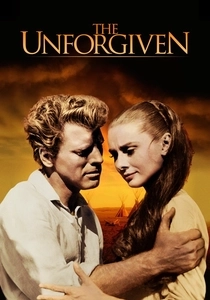
The Unforgiven (1960)
Description: This film deals with racial prejudice and family secrets when a family's adopted daughter is revealed to be of Native American descent, exploring themes of identity and human rights.
Fact: The film was directed by John Huston and starred Burt Lancaster and Audrey Hepburn, with Hepburn's role being one of her most challenging.
 Watch Now
Watch Now 
The Man Who Shot Liberty Valance (1962)
Description: While not directly about human rights, this film explores themes of law vs. lawlessness, civilization vs. savagery, and the myth-making that can obscure the truth, touching on the rights of individuals in a changing society.
Fact: This was one of John Wayne's most iconic roles, and the film's famous line, "When the legend becomes fact, print the legend," has become a cultural touchstone.
 Watch Now
Watch Now 
The Legend of Nigger Charley (1972)
Description: A Blaxploitation Western where a former slave, Charley, fights for freedom and against racial oppression in the Old West, highlighting the struggle for black rights and identity.
Fact: This film was part of a trilogy, with the sequels being "The Soul of Nigger Charley" and "Boss Nigger," all focusing on black characters in the Western genre.
 Watch Now
Watch Now 
Posse (1993)
Description: Set during the Spanish-American War, this film follows an African-American cavalry unit that returns to the U.S. to fight for justice and land rights, showcasing the struggle of black soldiers in the West.
Fact: The film was directed by and starred Mario Van Peebles, who also co-wrote the screenplay, aiming to bring attention to the often overlooked contributions of African-American cowboys.
 Watch Now
Watch Now 
The Last Outlaw (1993)
Description: This film features a gang of outlaws who take hostages to secure their escape, but one of the hostages, a doctor, fights for the rights of the innocent, showcasing the moral dilemmas of justice.
Fact: The film was originally made for television, starring Mickey Rourke and Dermot Mulroney, and it explores themes of redemption and the value of human life.
 Watch Now
Watch Now 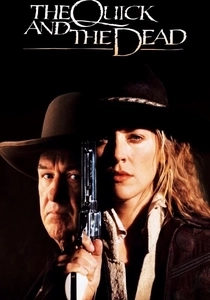
The Quick and the Dead (1995)
Description: A mysterious woman arrives in a town to participate in a deadly quick-draw contest, seeking justice for her father's murder, highlighting themes of revenge, justice, and personal rights.
Fact: The film was directed by Sam Raimi and features a strong ensemble cast including Sharon Stone, Gene Hackman, and Leonardo DiCaprio.
 Watch Now
Watch Now The Tracker (2002)
Description: Set in early 20th century Australia, this film follows an Aboriginal tracker who helps a white policeman hunt down an accused murderer, exploring themes of racial prejudice and justice.
Fact: The film was shot in a minimalist style with long takes, emphasizing the stark beauty of the Australian outback and the moral complexities of the story.
 Watch Now
Watch Now 
The Ballad of Gregorio Cortez (1982)
Description: This film tells the true story of Gregorio Cortez, a Mexican-American who becomes a fugitive after a misunderstanding with a Texas Ranger, highlighting issues of racial injustice and the fight for fair treatment.
Fact: The film was based on a book by Américo Paredes, which itself was inspired by real events from
 30 Days Free
30 Days Free 

